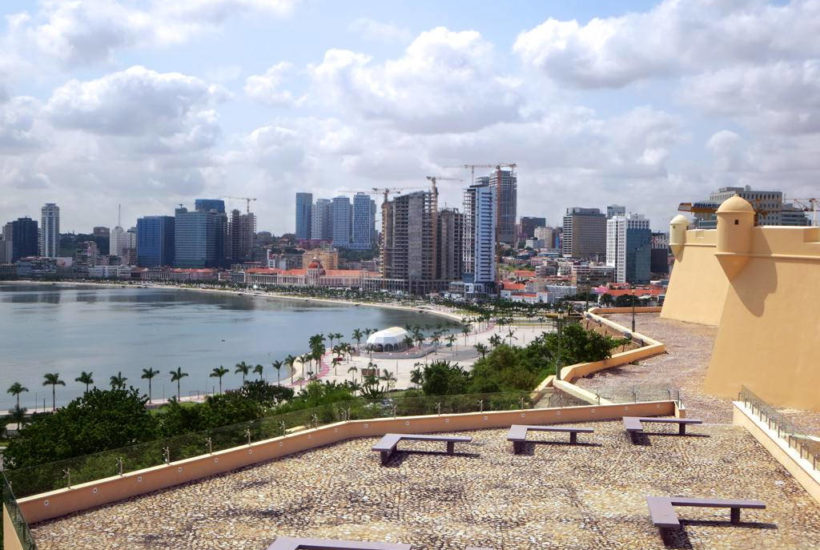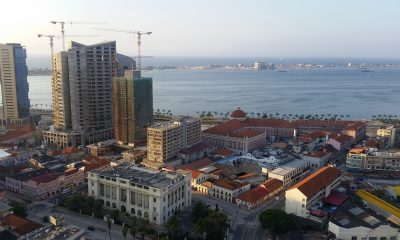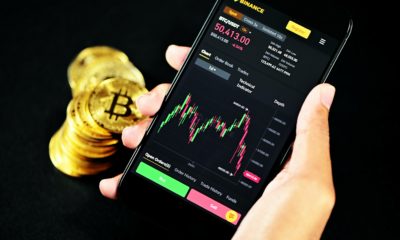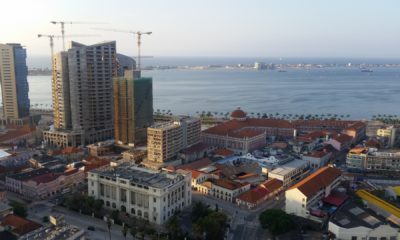Africa
Angola might devalue the kwanza, as the country’s economy is threatened
Angola’s central bank governor said that the national currency, the kwanza, registered a 10% depreciation, from January to the current date. Financial analysts said that Angola’s economy will be the most affected by the drop in oil prices and the rapid spreading of the new coronavirus in the territory. Central banks of Angola and Nigeria will be forced to devalue the national currencies.

The governor of the National Bank of Angola (BNA) rejected Friday, March 27th, that the national currency, the kwanza, is “again in a scenario of uncontrolled fall.”
“This is not the case,” said José de Lima Massano, who was speaking at a press conference, after the meeting of the Monetary Policy Committee of the Angolan central bank.
For more information about the impact of the drop in the price of oil and the spreading of the new coronavirus in Africa, download our companion app Born2Invest. Reading the latest economic news with the Born2Invest app makes it easier for you to keep informed, to intuitively move from story to story, and from section to section. Our clean design lets you read articles without clutter, and use the app with no limits on how many articles you can view.
Angola’s currency, the kwanza, registered a depreciation of 10%
According to José de Lima Massano, the 10% depreciation of the kwanza, from January to the present date, is in line with external factors. The most important factor is the fall in the price of a barrel of oil, a situation that also affects other economies with the characteristics of Angola, notably Brazil, and almost all of Latin America.
“We should take a look at what is happening, for example, with the Brazilian economy, where the real depreciated above 20% in the same period. In addition, the South African rand has also depreciated above 20%. In fact, depreciations registered currencies in almost all of Latin America, Chile, Ecuador, Colombia, Mexico, our currency fell 10%,” he said.
José de Lima Massano said the main hits were made on December 31st, 2019, and in January there was still “a certain pressure,” with a depreciation of 2.7%.
“In February, we had an appreciation of the kwanza against the dollar, but in March we saw a depreciation of the currency again,” he said. “Yes, we had an adjustment justified by this context, of an external factor, the sharp drop in the price of oil,” he continued.
José de Lima Massano said that reforms at this level are essentially carried out, but the situation will continue to be monitored, “with the same principles, to ensure that the country has international reserves to cover responsibilities and needs, that the market finds a balance,” among other aspects.
Financial analysts think that Angola’s economy will be the most affected among African countries
Last week, the consultancy Capital Economics considered that the central banks of Nigeria and Angola, the two largest oil producers in sub-Saharan Africa, will be forced to devalue currencies to maintain foreign reserves.
“We hope that policymakers in Nigeria and Angola will be forced to devalue their national currencies in an effort to conserve foreign currency reserves,” analysts wrote in a note on how the major African economies will cope with the impact of the new coronavirus on the African territory.
The analysts also considered that “in Nigeria, the increase in production volumes and the large non-oil sector will help to accommodate the impact,” but in Angola, on the contrary, “export revenues will fall by almost 2.5% of Gross Domestic Product in the first quarter alone,” making Angola the country most affected by this context and “pushing the economy into even greater recession this year.”
__
(Featured image by David Stanley via Wikicommons)
DISCLAIMER: This article was written by a third party contributor and does not reflect the opinion of Born2Invest, its management, staff or its associates. Please review our disclaimer for more information.
This article may include forward-looking statements. These forward-looking statements generally are identified by the words “believe,” “project,” “estimate,” “become,” “plan,” “will,” and similar expressions. These forward-looking statements involve known and unknown risks as well as uncertainties, including those discussed in the following cautionary statements and elsewhere in this article and on this site. Although the Company may believe that its expectations are based on reasonable assumptions, the actual results that the Company may achieve may differ materially from any forward-looking statements, which reflect the opinions of the management of the Company only as of the date hereof. Additionally, please make sure to read these important disclosures.
First published in Africa21Digital, a third-party contributor translated and adapted the article from the original. In case of discrepancy, the original will prevail.
Although we made reasonable efforts to provide accurate translations, some parts may be incorrect. Born2Invest assumes no responsibility for errors, omissions or ambiguities in the translations provided on this website. Any person or entity relying on translated content does so at their own risk. Born2Invest is not responsible for losses caused by such reliance on the accuracy or reliability of translated information. If you wish to report an error or inaccuracy in the translation, we encourage you to contact us.

-

 Business2 weeks ago
Business2 weeks agoFed Holds Interest Rates Steady Amid Solid Economic Indicators
-

 Crypto14 hours ago
Crypto14 hours agoBitcoin Surges Toward $110K Amid Trade News and Solana ETF Boost
-

 Fintech1 week ago
Fintech1 week agoMuzinich and Nao Partner to Open Private Credit Fund to Retail Investors
-

 Crypto4 days ago
Crypto4 days agoBitcoin Traders on DEXs Brace for Downturn Despite Price Rally
























